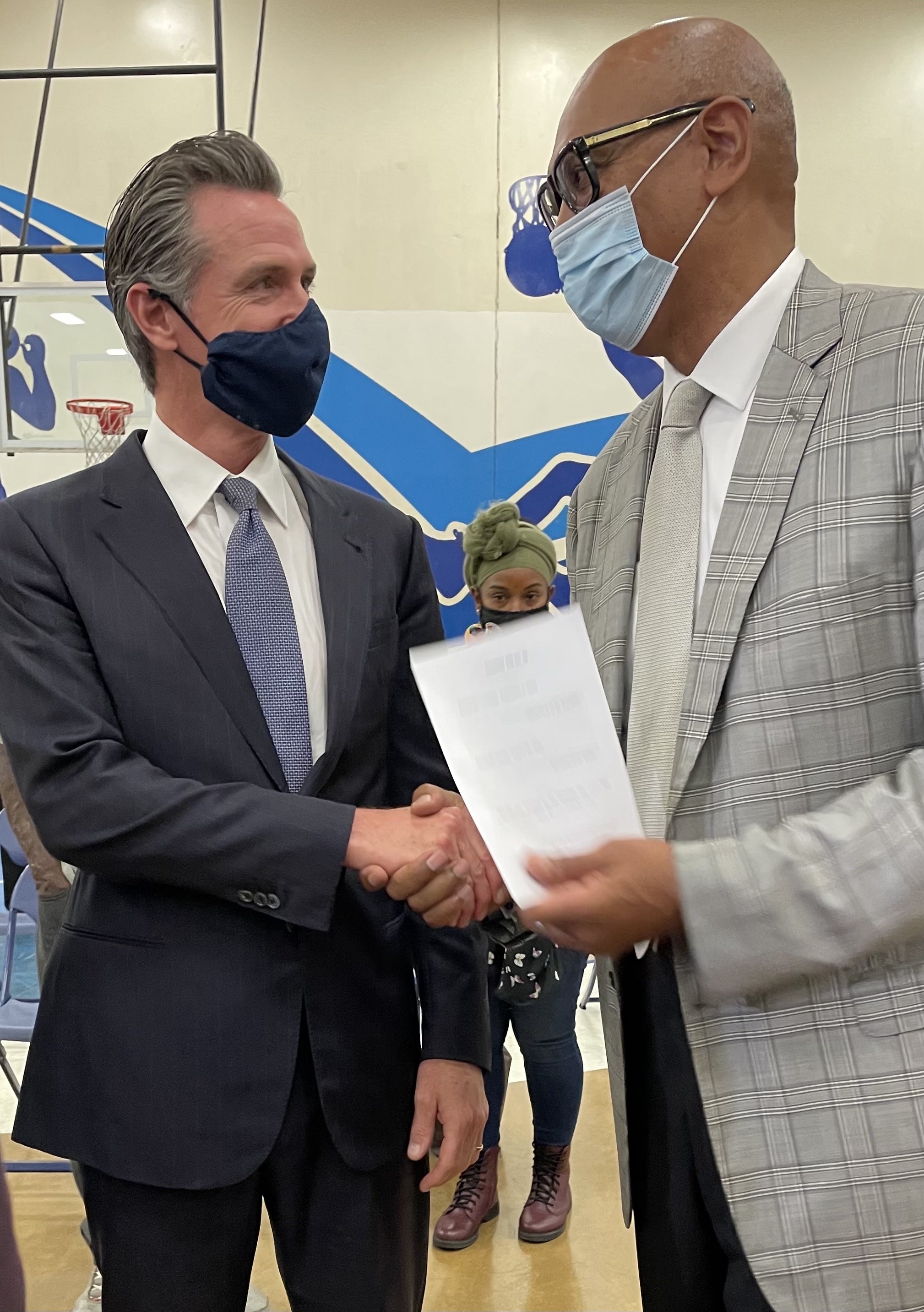
Los Angeles, CA – Today, Governor Gavin Newsom signed Assemblymember Chris Holden’s police reform legislation, AB 26 that establishes clear guidelines for police responsibility and accountability when witnessing excessive force by another member of law enforcement.
“Derek Chauvin was charged for killing of George Floyd, but justice for George Floyd doesn’t rest in Chauvin’s conviction alone – there were three additional officers who simply stood by and watched him die,” said Assemblymember Chris Holden. “I thank Governor Newsom and everyone who supported AB 26 that will make it crystal clear in our state law what is a peace officer’s duty to intervene when witnessing excessive force.”
California law requires police officers to intercede when observing another officer using force that is beyond that which is necessary, but there are no universal measures used to determine that an officer has in fact interceded. In the case of George Floyd, a lawyer for one of the accused junior officers argued that there was intervention because the junior officer asked the supervising officer if they should turn Floyd on his side.
Under the new law police officers would be required to intercede when witnessing excessive force under the updated guidelines and report the incident in real time to dispatch or the watch commander. The officer’s due process will be protected as the employing agency would review evidence and determine if the offending officer met the standard for intervention. Retaliation against officers that report violations of law or regulation of another officer to a supervisor would be prohibited.
Last year, Governor Newsom’s Policing Advisors released their recommendations which included legislation to “Require officers to intervene to prevent or stop other officers from engaging in excessive force, false arrest, or other inappropriate conduct.”
“Today’s signing is a big step forward for police responsibility and accountability. Instituting these core values are paramount to building public trust that has eroded between law enforcement and communities across California,” said Holden.
AB 26 clarifies and establishes intervention to include, but not limited to:
- The use of de-escalation techniques
- Confronting the officer applying excessive use of force
- Physically stopping the excessive use of force, when in a position to do so
- Recording and documenting the incident in real time with body cameras
- Reporting the incident to dispatch or the watch commander in real time stating the offending officer’s name, unit, location, time and situation in order to establish that an attempt to intervene has been made
AB 26 also makes the following the changes to state law:
- Requires the peace officer to report the incident immediately to his/her supervisor
- Prohibits retaliation on a peace officer for reporting the incident
- Prohibits an officer from training other officers for a period of at least three years from the date that an excessive use of force complaint is substantiated
- Requires an officer who fails to intervene be disciplined up to and including in the same manner as the officer who used excessive force
The full text of the legislation can be found here, and full remarks from today’s bill signing here.
